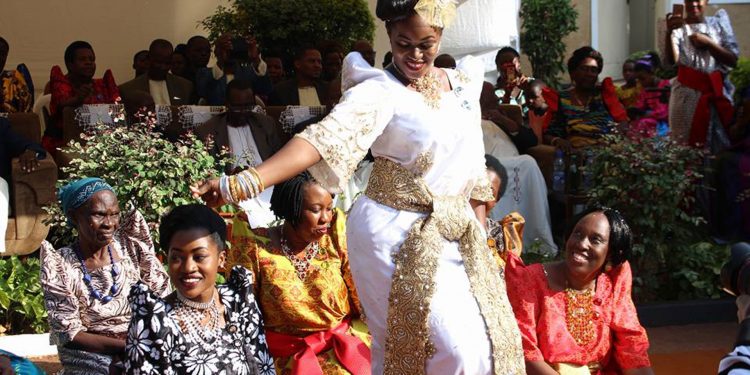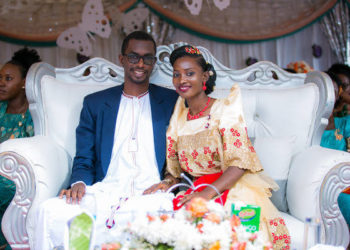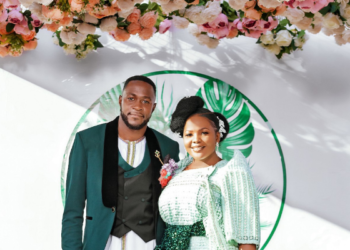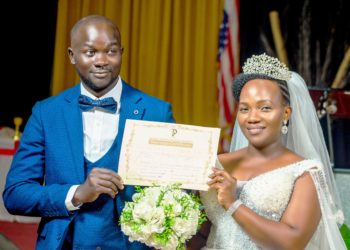Collins Hinamundi
The meaning of introduction ceremonies has changed, with most couples settling for kwanjula instead of church marriages, commonly because of financial constraints.
There is something about introduction ceremonies these days; their whole purpose has been erased and a new identity given to them. “I think they should just be given a new name,” John, an elderly uncle of mine, says when I ask him what he thinks of today’s introduction ceremonies.
The whole purpose of an introduction ceremony used to be the girl introducing her husband-to-be to her parents and family. That required a small entourage from the husband’s side and the gifts to come with that. These days, it is a fully-fledged party with hundreds of guests from both sides; the emcees at these ceremonies have also been given the role of negotiator – this means they take part in all negotiations.
Ibrahim Sejjoba, a prominent introduction ceremony emcee with Mikolo Enterprises Limited and marriage counselor, said at times he tries to advise parents against some of the things done during these ceremonies but the parents don’t listen. “One time I told a parent that the part of exchanging rings changes the ceremony’s whole purpose and the man told me to do what I was paid to do,” Sejjoba said. “And well, I am paid to do as I am told,” he added.
Yes, exchange of rings also happens during introduction ceremonies nowadays; people don’t have time to wait for the church wedding to tie the knot. Introduction ceremonies have become marriages in some cases because the ring means marriage. People’s attitudes have started changing to viewing introduction ceremonies as traditional marriages and no one asks questions when a woman starts staying with her fiancé after an introduction ceremony.
In most cases, the big crowds that attend the ceremony also put pressure on the husband to “deliver” and impress so what would have been a simple entourage has to be exaggerated because he has to earn the respect of his future in-laws, and because his fiance wants to get her friends’ admiration. This causes financial strains on the couple. Ivan says he had promised his in-laws a wedding a month after the introduction ceremony but the financial blows he had to take during the introduction were too much for him to keep his promise.
“That was when I realised that nowadays introduction ceremonies are more expensive than wedding parties,” he said. And honestly, I have not found anybody who disputes what Ivan says. From the many gifts needed to impress and the endless envelopes, it gets worse if the lady has many brothers and they all have to get suits and kanzus.
For those who want to avoid the hassles of securing a date for a church wedding, it is a way out and since it is seen as a traditional marriage these days, the fruit of your womb will not be a bastard, thanks to social attitude towards tradition. However, the question is, is the church wedding still a must when rings are been exchanged already and vows witnessed by elders from both families?
Now, if some Ugandan had the audacity to propose a law to have our phone calls listened in on, why don’t we propose a law to have another name for introduction ceremonies and for them to be recognised as traditional marriages?










